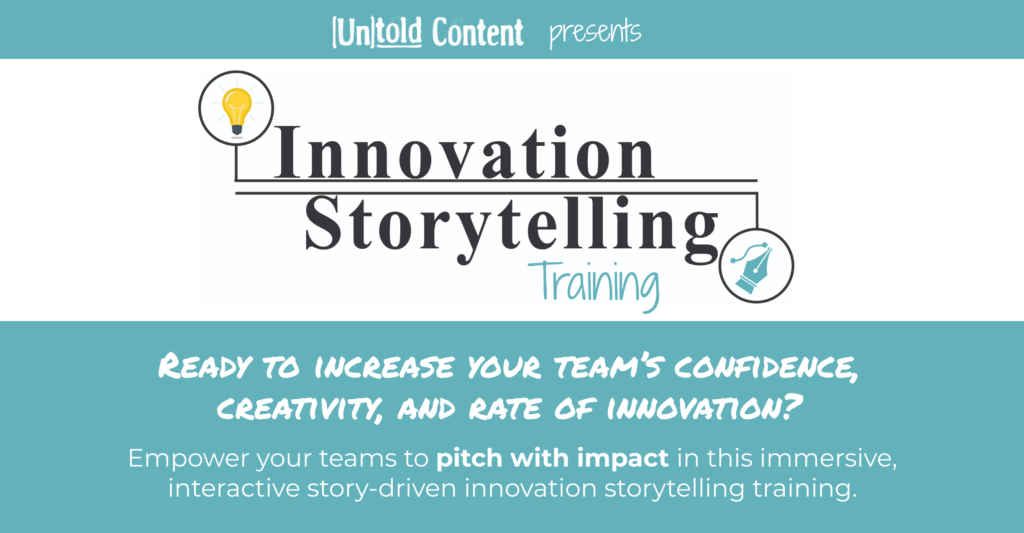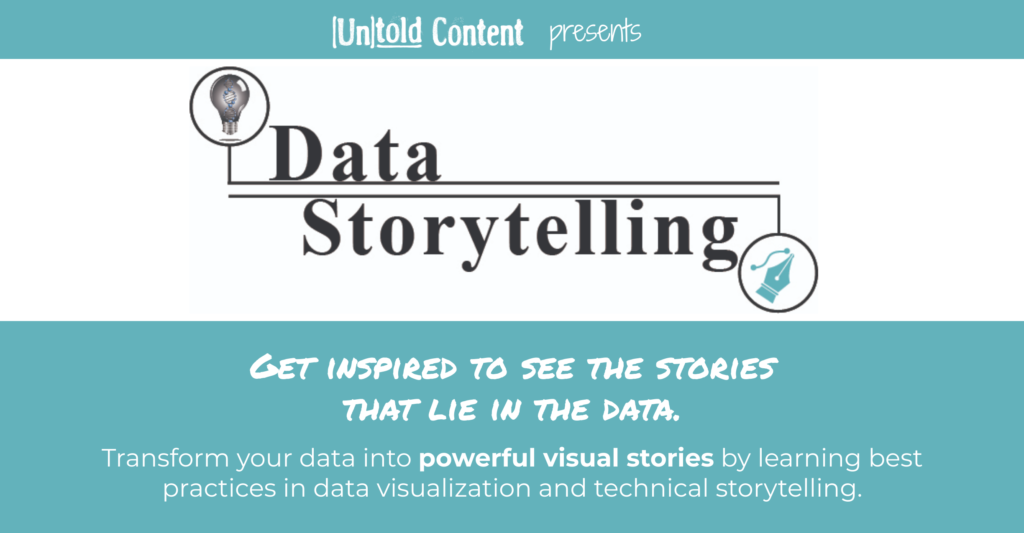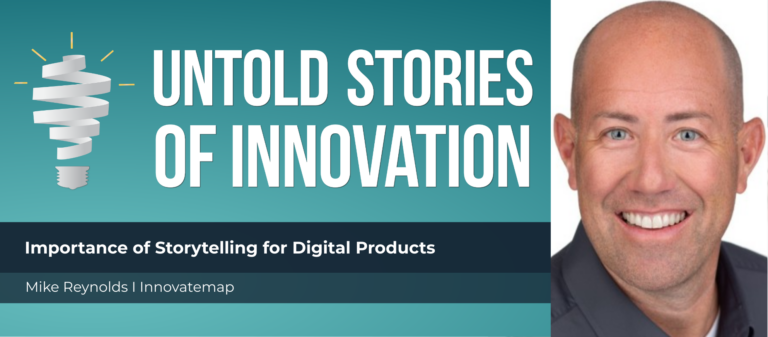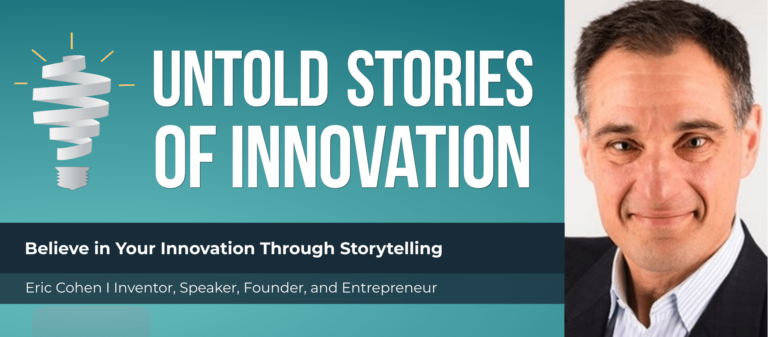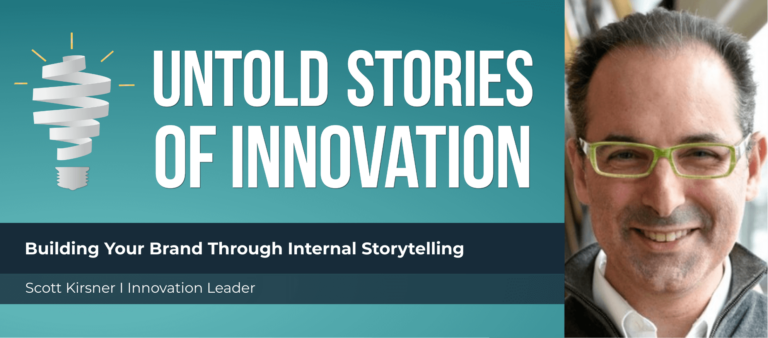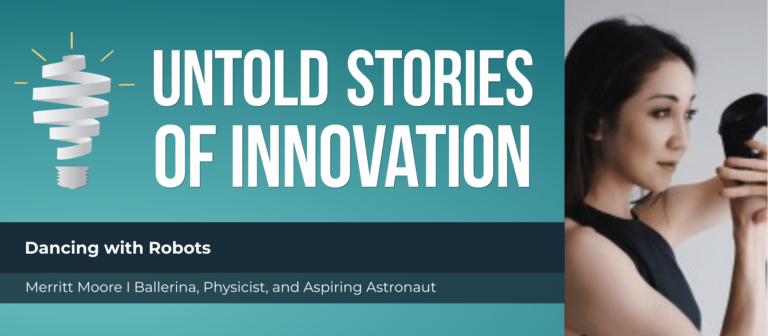Revolutionizing Accessible Healthcare with Dan Miller of Spora Health | Healthcare Heroes Pt. 1
Revolutionizing Accessible Healthcare - Untold Stories of Innovation
“The consumer’s relationship with the content is extremely important in bridging the gap, helping them stay engaged and increasing adoption.” -Dan Miller, mentor at Backstage Capital and founder and CEO of Spora Health
From today’s episode you’ll learn:
Why do stories matter to the innovation process? What values can be instilled in innovators who share stories? How do innovation leaders inspire creators to tell and share their success and failure stories?
We speak with Dan Miller, a mentor for Backstage Capital and founder and CEO of Spora Health, about his experience in the tech field and his advice for fellow entrepreneurs. Dan is kicking off our #HealthcareHeroes podcast mini series, where we’ll be sharing interviews with folks who are changing the health care space. Dan provides opportunities for underrepresented voices to share their own stories in the realm of business and healthcare. Today, he shares insights into the world of the United States healthcare system and how sometimes success is just showing up.
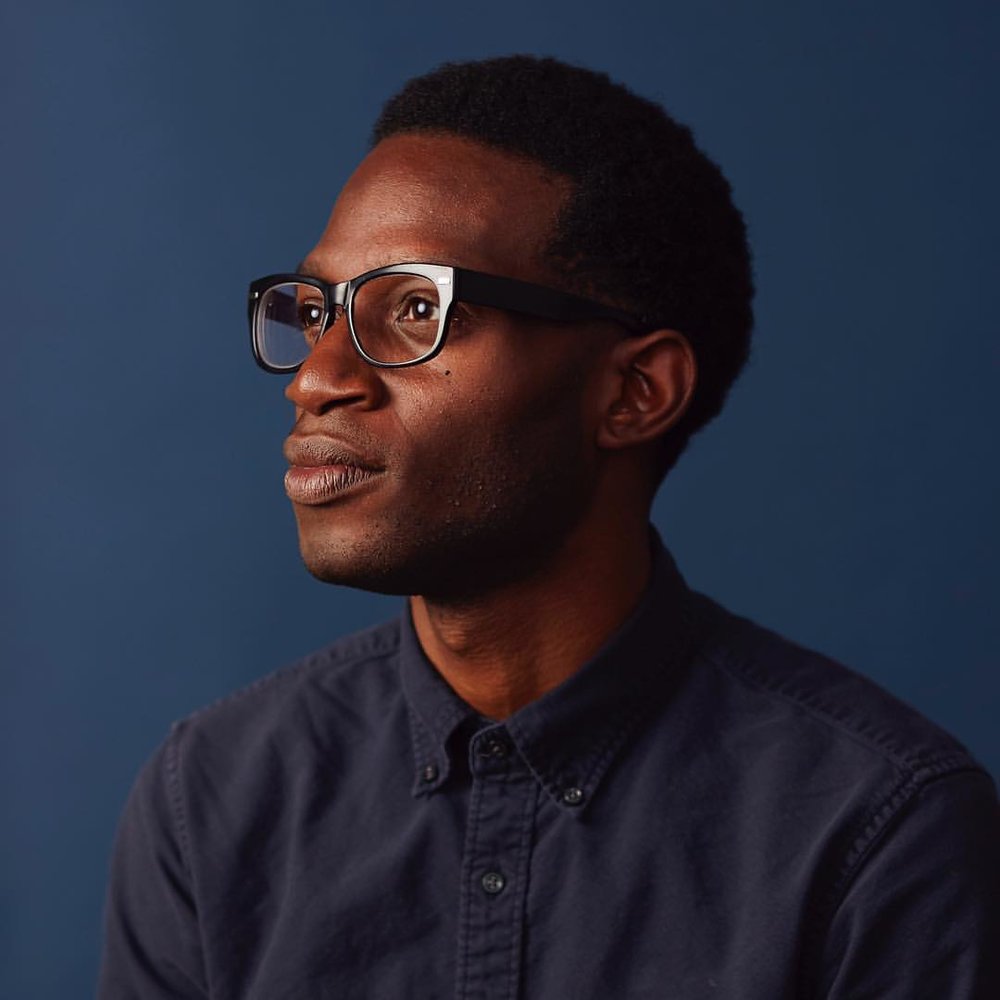
Dan Miller is a mentor at Backstage Capital and founder and CEO of Spora Health. At Backstage Capital, he guides budding entrepreneurs through the realm of business. Backstage invests in underrepresented founders who identify as women, people of color, or LGBTQ. Dan also founded Spora Health, a primary care network and virtual service that provides culturally-centered care. His background in tech and wellness has fueled his passion and skill surrounding storytelling, along with the tools to innovate the way we practice healthcare.
untoldcontent.com/trainings/innovation-storytelling-training
TRANSCRIPT – Revolutionizing Accessible Healthcare
This episode, Revolutionizing Accessible Healthcare is powered by Untold Content’s innovation storytelling training. Increase buy in for your best ideas in this immersive and interactive, story-driven experience. Where your teams refine storytelling techniques for their latest projects, prototypes and pitches—and get inspired by 25 epic examples of impactful innovation stories. Learn more at https://untoldcontent.com/innovationstorytellingtraining-2/.
Katie: Welcome to Untold Stories of Innovation, where we amplify untold stories of insight, impact and innovation. Powered by Untold Content, I’m your host, Katie Trauth Taylor. Our guest today is Dan Miller. He is a mentor at Backstage Capital and he is founder and CEO of Spora Health. Dan, I’m so grateful to have you on the podcast today.
Dan: Thank you, Katie. I’m really excited to be here and chat today.
Katie: Can you tell us your personal story of innovation?
Dan: Yeah, absolutely. So I think my story of innovation — I believe the impetus is probably when AOL and AIM came out to tech in the mid-90s, I believe.
Katie: Yes.
Dan: I grew up in — I guess that takes us up there a little bit. But it’s funny, I’m now entering a stage in my life where I can start to say those things, and it’s just kind of interesting.
Katie: It’s bizarre, right. Yes, I’m probably in a similar boat there.
Dan: I grew up on the East Coast, New Jersey, in a town about an hour north of Philadelphia, an hour 20 minutes southwest of New York City, called Flemington. We’re in a rural part of New Jersey that borders Pennsylvania. And I just, I was always what my aunt would call a busybody. And I was just very active and very interested in learning as much as possible. And so about time that I got wind of the Internet and we had our computer lab at our elementary school, thankfully, I was in fifth or sixth grade and I lobbied my parents to, you know, get the Internet in the house. And I sold that pretty well, I guess. So we had AOL shortly thereafter. And after, I was connected to the notion of being able to just follow my curiosities through my fingertips and a keyboard and learn and get access to anything that I was curious about. Like it was over from that point forward, I was sold. Shortly thereafter, I learned a bit more of the engineering side of things by — taking a step back — I was very into computer games and video games, in general, and games, period. So I loved to play sports, and when I wasn’t outside being active, playing sports, I was inside playing video games on the computer or on, you know, a gaming system. And so I had a group of friends that we used to play computer games a lot together, and we ended up building our own Alienware computer just to make sure that we could have the fastest computer possible with the best video graphic card that was out at the moment and that we could modulate what the performance was of the computer. And I also at around that time started to get into kind of software development, quote unquote, just by programming my first role-playing game, this was around sixth grade. And this was the — this process over these few years was the impetus of me really understanding my love as a consumer for innovation and technology, but also the very first glimpses of what would end up being a career and actually creating these technologies. But it all just started around curiosity, for myself.
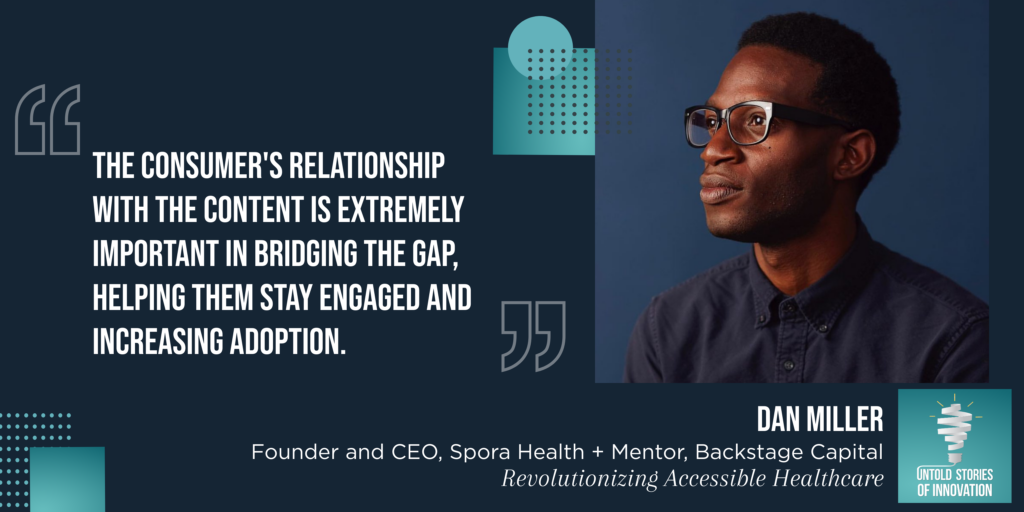
Katie: It’s incredible. And now you’ve been part of a couple of different accelerator programs. Are you — do you have some current news for us about OnDeck, too? Is that new?
Dan: Yeah, yes. So, OnDeck is a Todt accelerator. And so actually last month I decided to step away from Atheros and start to create the seeds for what will be my next company that I’m working on, called Spora Health. And, Spora Health is going to be a primary care network, but also a virtual service as well, that provides what we are defining as culturally-centered care. And so we are designing healthcare, primary care in particular, specifically designed for people of color in the United States. And so our goal is to address racial and ethnic healthcare disparities across the Latinx, Black American, South Asian and East Asian American communities in particular, but we’re not exclusionary to any other groups, but we are very inclusive of these groups and are uniquely designing experiences for them with the hypothesis of if we do so, we’ll be able to address significant health care disparities.
Katie: Dan, that is unbelievable.
Dan: Thank you. Yeah, it’s very big and ambitious of a goal, and so it’s my job now, and joining OnDeck as part of this is to de-risk the opportunity as much as possible over time. And so the very first iteration will be something virtual that focuses on providing mindfulness programs and nutritional programs specifically for the Black American community. And then we’ll learn from there and figure out if we should grow horizontally or vertically. But OnDeck and some other programs that we’re working with should allow us to make those decisions much easier.
Katie: Can you tell us what inspired you to start Spora Health?
Dan: Yeah. So, the impetus for Spora Health was more of a process than it was spurred by a particular event. So, my last company that I started to have at ’15 and ’16 was also in health care, a company called Level Therapy, and we focused on providing video access to licensed psychotherapists. So, we are a mental health practice, we just provide our services through your phone. But we also built our own software to manage the anxiety and depression on your own if you aren’t necessarily interested in speaking with a professional psychotherapist. So that was my first kind of immersive experience and understanding of the United States healthcare system and ways and areas that technology can be a really good solution for providing access to care or increasing the adoption of care, ultimately improving treatment outcomes. And so fast forward to now, I wasn’t necessarily all that excited after us being at Atheros for about a year. We did some really great work, we grew 300 percent year over year, we built our own platform, we were really helping a lot of folks get access to jobs. But I was feeling the itch to want to start something else. And so I just did some time — set some time aside and really thought about opportunities that I’m uniquely qualified to address and that is definitely, undoubtedly still within healthcare. Digging a little bit deeper, what, you know, opportunities did I uncover or did I notice were kind of picking up in terms of velocity in the marketplace. Wellness is obviously one, and that’s not that uncommon. However, there is still an opportunity to create culturally relevant wellness products. And so there still is this disconnect between the producer of content and the consumer of content. And so these things aren’t necessarily linear in that, like, they’re not ubiquitous in that — let’s say if you have a, you know, the common cold you go to a physician, and most physicians are going to prescribe the same sort of medicine. We’re talking about wellness specifically around mindfulness and meditation. The consumer’s relationship with the content is extremely important in bridging the gap and helping them stay engaged and increase adoption so that you can increase outcomes and the benefits from the actual programs. And so the thought is that if we create something that is a bit more culturally local to how people are experiencing the world, what they actually are experiencing in their environments, then at the very least we can bridge the gap around adoption, which again, at the very least can start to suggest that we can increase treatment outcomes and engagement, which is extremely important when talking about nutritional programs and mindfulness and wellness. So after having that sort of realization, I still thought that that was compelling, but not compelling enough for me to want to leave my full time job and start something again, knowing that starting companies is very costly. So yeah, I just took a step back and thought, okay, if I’m operating from a place of abundance, what’s the largest that this potential approach could be? Like how much impact could we create through this approach? And I arrived at primary care, which has similar issues, and really spent a lot of time reading about the foundations of health care disparities and socially competent health care. And it turns out a lot of folks have been doing research on this for a few decades now. There still isn’t anyone nationwide trying to take this approach towards health care, and so that was a signal for me that there is an opportunity there and that there’s still some more research to be done. And so we continue to do some more research with consumerism or primary research. We had our first acquisition at Twitter where we — last week — where we actually developed for Black History Month, a Black wellness fair. And we brought in competent practitioners of Black acupuncturists, psychotherapists, massage therapists, folks teaching, or we had a Kung Fu Master teaching Qigong and Taichi, I led a guided meditation. And folks were really engaged and we had about 120 individuals come and participate. And that was a really strong signal that we’re heading in the right direction. So now moving forward, trying to figure out how we productize that and make sure that we are incentivizing the right actions and engagement behaviors.
Katie: It’s such important and critical work, I think, especially as we hear more demand and understanding in the medical community, but also in the broader public around social determinants of health and the need to really reach people where they are in terms of how we communicate to patients or consumers of healthcare. You know, this speaks so closely to my heart, especially at a lot of my early research when I was sort of finishing up my PhD and was around Appalachian Health, actually, and in that particular region of the world and how you bridge the gap between doctors and providers and communities there and try to make relationships and make educational materials that actually really do speak to people in their own language and their own sort of homeplace. And so, you know, all of that is so critically important. And I feel that what you’re doing, it could pave the way for other cultures and identities and really challenge health care as a whole to think about creating diversified approaches that might speak to — really, I think it’s about breaking down assumptions, right?
Dan: Yes, exactly. Exactly. And yes, you’re absolutely right. And these things, because they’re in the fabric of American society, they show up in the workplace, but in particular in health care environments. And that leads to a lack of trust. And because there’s a lack of trust, often there is a lack of proper communication. Sometimes there’s more acute barriers between being able to communicate patient-to-consumer, and just lack of trust and lack of communication leads to just conversations around one’s care not taking place, which is its own issue, but then also potentially a lack of trust leading to a lack of adherence, which is also costly. Many things end up trickling out to being public health issues at a macro level and at a micro level, just not — they are impacting negatively the patient’s health, unfortunately, as well.
Katie: Yeah, definitely their quality of life, their — the health of their families and themselves and individually and then communities. You’re absolutely right. The other thing that’s really interesting to me about what you’re creating is it inspires, I think, more visibility for minority providers or, you know, for people to see that there — that others who maybe aren’t the stereotypical, you know, racial or gender identity to actually be serving in different provider roles, right. You mentioned acupuncture and physical, you know, medicine, obviously, primary care. We have a massive shortage of primary care providers in the United States. And so not only having patient experiences that are relevant to Black America, but also being able to shed more visibility on providers who are Black and being able to see more of them out there and encourage and inspire more young people to say, yes, that could be me, I could take that career path because someone who looks like me has done so, too.
Dan: Yeah, yeah, absolutely. That is definitely something that is uniquely going to be important to the success of the practice that we build and making sure that we are representing the communities that we’re serving. But also, you know, be very transparent and clear about this in that, like, I understand that from a sheer numbers perspective, we’re never going to be able to — I won’t say never — but not in the short term be able to provide the same race access to physicians, particularly in the context of Black Americans. Currently today there are less than 1 percent of physicians in residency, in relation, or in contrast I should say, to 13 percent of the American population, being Black. So what does that look like for our practice and at scale? What it does mean is that yes, where we’re going to build a practice that we believe is going to be attractive for primary care physicians and other types of clinicians to join our practice to provide care. It’s not gonna work for everyone, I’m keenly aware of that fact, as well. And so what do we do with those challenges and with those variances potentially? So, we focus on education and we focus on still making sure that we are creating the tools to help physicians and the clinicians that are in our practice be successful in communicating and understanding the environments that individuals are coming from and are bringing with them into their relationships with their providers. And when we do that — there’s some work and some research on this — but, if we can effectively do that, we’ll be leaps and bounds ahead of where we currently are today acting like these things don’t exist, whereas they show up consistently in research report after research report — that’s just on the research side — but they also show up with a lack of mistrust and just feeling unsatisfied, unheard, and having negative experiences on the patient level when they leave their provider’s office. So understanding that we can’t have a one-to-one supply and demand type of relationship just yet, we do believe that eventually in the future maybe it’d be amazing if we could get there, but also understanding that it’s still going to be our job to make sure that we’re educating other physicians and other clinicians that are in our practice to understand the experiences in the environments, socially, that communities are existing in, and the things that they could be bringing with them in their bodies to work.
Katie: Absolutely, I completely agree. You’re really going to — this concept that could really change the way that all people and all providers approach their care, so I think that it’s incredibly powerful. As you launch this, I know it’s very young, but what’s on your mind right now when it comes to the story of this company?
Dan: When it comes to the story of this company I’m thinking largely about differentiation. And so I’m thinking about “how can we market ourselves in a way that is very clear and very understandable for health care networks, for providers, and for end users?” So I had been thinking a lot about what language is working well. I’ve been talking with a lot of different parties. This is kind of part of my design process and my branding process for any company that I end up starting. After I have a kind of an understanding of what the hypothesis could be that we need to solve, I immediately go out and start talking to individuals about it way before I have, you know, any sort of clear elevator pitch or really any sort of understanding of how to package specifically what I’m working on. And, you know, for the first few conversations, I just sound like I’m rambling because I am, but, you know, to me, I know that I know the information and I know I’m competitive in being able to acquire information, retain information and, you know, speak to the right types of information to different people when I need to. But part of it is for me to go out and have conversations and gauge how individuals are responding to what I’m saying, understand the types of questions that they ask, understand visually reading body language and understanding if they’re in positions of agreeing with what I’m saying or if they’re feeling kind of contentious against what I’m saying, as well. And this process helps inform what I say and when I say it for subsequent conversations around the opportunity. And to why that’s important is because for technology companies in particular, but also healthcare companies, individual health companies, there are a lot of new entrants in the market every single day. Branding is going to be increasingly competitive. If individuals are not able to create a strong brand that effectively communicates what it needs to communicate to the market, they’re not going to be around in 5, 10, 15 years. And I’m trying to build a company that is going to go public in 10 years. So I’m very focused on making sure that we are doing the groundwork to start from a strong position, from a branding perspective, and so part of my processes to get out there and talk about these things, but also make sure that we have a strong process to synthesize the learnings from these conversations and the value propositions that we’re creating into an online presence. So whether that’s a landing page, whether that’s an app, or offline experiences that we’re creating, as well, they all need to feel the same way and speak to the same things.
Katie: It’s great advice to not wait until your elevator pitch is perfect, to try it out on people who sort of —
Dan: Yeah, it’s — even if you think it’s perfect, you’re going to go out there and, you know, try to rehearse something or try to recite something that is rehearsed and memorized, it’s — I’ve been, I’ve had that approach very early on in my entrepreneurial career as well. And it just doesn’t feel genuine and authentic. And you could tell when — well, at least I can tell when — an individual just knows the material and they’re just really connected with the problem that they’re solving or it’s something that they’re just kind of, you know, regurgitating, something that’s rehearsed because they know they need to have something to describe what they’re working on. And, you know, authenticity is going to win that battle any day.
Katie: Yeah, definitely. I think it’s almost too there’s a level of an openness to participation that you’re enabling when you come at it a little less polished, right, you’re sort of inserting opportunities for your listener to give you feedback, and you’re humbling yourself too.
Dan: I agree, thank you.
Katie: I’m so interested in the concept of “move fast and break things” and the ways in which that can and can’t apply in the health startup space. Can you share some of your thoughts around that?
Dan: Yes, it’s a great topic. It’s, you know, this is a large topic. So taking a step back from a high level, we, and I say we as technologists and entrepreneurs in the technology space, are not in a great position as it pertains to public opinion. And this is something that I have given a lot of thought about. I was aware of this — these trends kind of happening back in 2016. Nothing — you know, they weren’t as bad as they are right now, per say, however, there was still significant breaches that were happening. As I really understood how products were being designed, what the dark side of UX could look like, and what it’s looking like, and how these approaches towards making products, quote unquote, sticky and addictive were being implemented in consumer products, I really understood that, you know, this wasn’t a very good scenario for, you know, inspiring trust from the community and from the public. But I also knew on the other end for digital health products to be successful, we really do need the data and to really understand whether or not approaches are working well, access to data is essential and the amounts of data points that are collected and are shared are nowhere near the proportions that they are in consumer products like Uber or Google or Pinterest or Twitter, etc. And so whereas you may be having access to hundreds of millions and billions of data points, as something like Facebook, within a digital health company, you may be lucky if you get access to, like, 100,000 Macs, like, you’re going to get — and that scale is very hard across different patient populations to understand which approaches are working well in it and providing statistical significance, so we can be smarter about, you know, the products we’re building. And so why start there is because it’s important to understand the context and the environment that we are in currently. So when we talk about notions like “move fast and break things,” parts of them have their place within health care companies, largely they do not at all. And it’s good, the only places that they really do hold a, you know, hold a place within a digital health company is when we’re talking about internal decisions around design and product decisions that don’t necessarily impact, or don’t involve, a user to move forward, or user’s data to move forward. Depending on the type of product that you’re working on, you know, this may be a large part of your — a large percentage of the decisions that you have to make day-to-day, or very few percentage of the decisions that you make day-to-day. But that seems to be the barrier for me, is that if we’re involving any data points that pertain to any patient or user’s data and leveraging that to make decisions, we can’t disrespect that and throw caution to the wind and move fast and break things. This is not, this is not a you know — we’re not in an environment where we can just, you know, a product can break. And so potentially this could be, like, life-threatening scenarios if one of our products breaks or goes down for a second or a particular, you know, a few minutes, or half a day, etc. And so it’s analogous to, you know, not one-to-one, but it is analogous to the financial services industry and a lot of the companies that are in that space, and they’re facing similar challenges from this lens around trust with the general public and not being able to really move fast and break things, you know. That type of rhetoric is reserved for consumer products that, you know, don’t necessarily have that much potential negative impact on individuals and society at large, but even still at that level, I don’t necessarily prescribe to that. I think we should be moving as quickly as we possibly can, for sure. If we’re gonna be resorting to breaking things, let’s break them internally in process and not in production where people are —they’re not being exposed to, I almost said our negligence, but you can make the case that it is negligence, actually, in some cases, but I don’t want to just externalize, you know, a particular system or industry’s intent to move fast and try to grow as quickly as possible to building bad experiences for the public.
Katie: Right. Yeah, exactly. It —well I think too, in a sort of post Theranos world, there’s more demand than ever for responsible action and any kind of whistleblowing, but also for health care companies and really other startups even outside of just medicine to have valid findings to support their creations and to be publishing to some degree and getting their work peer-reviewed to have published scientists on their board of advisors. And I think the pressure is higher than ever to do that. And we’re starting to see a rise in demand for those kinds of actions that take place, especially around health tech. But it’s a massive challenge to sort of work within the startup culture, but also be ready to have that level of responsibility and trust from the get-go that’s just demanded. And in industries like health care, or you mentioned financial tech, or you know, aviation is another one that comes to mind, I think, where it just has to be highly reliable, start to finish. No mistakes, really, no critical mistakes, anyway.
Dan: Yeah.
Katie: Could you tell us — I want to switch in the little bit of time we have left because we haven’t even been able to talk about Backstage Capital and what an incredible organization that is and how against the odds it was when it was formed by Arlan, you know, a few years ago. And now you’re a mentor as part of that incredible venture capital firm. Could you tell us a little bit about your role as a mentor?
Dan: Yeah. You know, it’s so crazy. My story overlaps with a few different individuals at Backstage, and so now being a mentor for some of their accelerator companies, it’s just bringing it full circle and it’s really cool and interesting. When I was working on Level Therapy, one of my early investors, he knew Arlan and Arlan had contact with him through the NLP, and so this particular individual introduced myself to Arlan. She was in full-on fundraising mode for what would be Backstage Capital, the initial fund. And at the moment, she wasn’t making investments, and so it’s like, okay, cool, no problem. And so I continued on to stay on my journey and I was fundraising at the time and actually did a podcast interview on a podcast called Mission and Values by a gentleman by the name of Bryan Landers. And so fast forward to today, Bryan Landers was just announced as one of their general partners maybe a month or two ago and a few episodes after Bryan interviewed me for Mission and Values, he had interviewed Arlan and then he started working — well, I actually believe Arlan acquired Mission and Values, and part of that was, you know, acquiring the team. And Bryan started working on design work and being their chief design officer, I believe, and then he was an entrepreneurial resident who was working with a lot of the other portfolio companies and then grew to be the COO and then is now a general partner. Just to say —
Katie: It’s just incredible.
Dan: Yeah, it’s so cool — these stories stay alive sometimes — so for me, there’s a call for mentors last year after Back Stage had announced their accelerator programs in three different cities, I believe it was L.A., Philadelphia and London. And at the time, I was based in New York and the time difference wasn’t that difficult, and so I was very interested in mentoring some of the companies that were building out marketplaces and/or health care or music related startups and it ended up being a good fit, and so I’ve started mentoring some of those companies while they were in the accelerator, the companies are based in London, and yeah, excited to continue to do so for some of the cohorts of companies. It’s something that’s really close to my heart and making sure that the next wave of innovators and entrepreneurs have the right understanding of considerations to take into account when they are building their businesses. And yeah, that was something that was very successful for me when I was just starting as an entrepreneur and helping identify what I didn’t know and how to go find the information and the resources to learn those skills or just learn the information, get access to the information. And so I want to make sure that I’m being as supportive of the next generation as possible so that we can, you know, at a high level and at a kind of society level, make sure that we are shortening the on-ramp to innovative products and at a kind of local, zoomed-in level, making sure that we’re decreasing the amount of negative interactions that entrepreneurs can experience in their path of trying to create a lot of impact in this world.
Katie: Yes. Yes, absolutely. It’s really changing all sides of the equation. It’s empowering the founder, it’s changing what funders — who decides to go into funding, it’s putting pressure on other venture firms to show that they are being more inclusive in their hiring practices and in their, you know, leadership practices around who becomes partner at those firms. I just —it’s such important work. And I think, you know, even here in the Midwest, where my startup is headquartered, there’s constant conversation. And at least if we’re not making progress, at least, damn it, we are having a conversation about it, even though sometimes it feels like beating our heads against the wall to try to change the number of minority founders and women founders who are getting venture money. But I just so respect the fact that you spend some of your time mentoring at Backstage, and I am a huge fan of everything that Arlan has evangelized for there.
Dan: Yeah, I’m blown away. I’m super inspired by all the work that Arlan has done and continues to do by the portfolio companies of Backstage and generally just the ethos of Backstage Capital and how important that is in D.C. and just financing industries in general. And so, you’re absolutely correct, I also — I agree, I believe it’s very important work and there’s a lot of very important meta commentary taking place, and so I want to support as much as possible.
Katie: Dan, when it comes to, you know, sort of giving advice around how we, everyone really — when I say we, anyone invested or are interested in innovation and who wants to be part of the innovation community in any aspect — what advice do you have for them about continuing to challenge assumptions and challenge what sort of used to be the stereotypical startup culture? Is there any advice that you would give as we work toward a more diverse understanding of what kinds of stories should be accepted and celebrated in the startup world?
Dan: Yeah, well, I think I’ll resort back to two values that I’ve learned along my journey. And they may sound rather nebulous, but they are rooted in experience and all facets of our physical reality. And so, the first is that everything is possible. And by that I mean — and I’m being very particular in saying everything and not anything is possible — and by that I mean all opportunities that exist in the universe exist currently in this moment. Meaning if we’re buying into the laws of thermodynamics — which explain the foundational components of this universe in that matter is not created, it just changes form — then all possibilities for creating the future exist currently in this moment. And it’s our job as innovators, as entrepreneurs to connect the dots to make sure that we can create the future. And sometimes that takes a very long time, a very long amount of time and a very long, a very large amount of thought and a lot of collaboration, sometimes less so, but that is the job. And so for the folks that want to, you know, walk down this path and be innovators, entrepreneurs, I want to share that, because you’re going to need to rely on that sort of level of faith to understand that what you are working on can be done. And if all opportunities that exist to help that successful be successful exist in this moment. But it’s also a recognition that everyone’s not going to be Thomas Edison, right. We can’t all be the person that actually is known for the creation of the large invention, sometimes we — it’s our role to do all the work we can to build, I say, the little filaments that’s in the light bulb. And that takes a lot of time, right, but we don’t know — the inputs are exactly the same. And you don’t know where you’re going to be on that path of innovation. And so do not be so attached to the outcomes. And just understand, this is the work that you want to do. Saying that, you know, again, the inputs are exactly the same, you don’t know where you’re going to be on this chain of innovation for a particular set of products, but to do your best to understand that, you know, the universe is on your side and all these opportunities to help you be successful are already present. And the last thing is to show up. And so, I’ve learned that over my career, 80 percent, if not 90 percent, of my success could be attributed just by doing the hard work that it takes and the easy work, honestly, that it takes just to show up and be in the room or to be in a position to be lucky. And so by that, I mean the hardest thing — I’m a long distance runner — the hardest every single time I go out to run, the hardest actual actions to take are, you know, putting on all my gear in my apartment early on the morning to get ready to go out and run. As soon as I get outside of my door and start running, like, it just — my body takes over and I understand what I need to do, and it’s just easy peasy after that. The hard part is showing up, the difficult part is staying in the game and being committed and doing the small — the actions that other individuals are not willing to do to get to the places that you as an innovator want to be in, right. And so making sure that we’re not just showing up, but also over time, you’re going to want to try to optimize those moments that you are showing up, right. So this is a really quick story about this is like if you’re going to be in class in university, you know, you go to class and, you know, there’s a range of places that you can sit in the actual, in the classroom. By and large, when I sit in the front row of a class I am more engaged, I feel like I learn more, I actually do believe I learn more, and I feel more connected with the material because physically I am much closer to where the source of the material versus when I sit towards the back of the room, I’m physically further away, there’s all these types of distractions to grab my attention, and it’s not the same experience. And so if we’re going to show up then show up and do our best and make sure that we’re 100 percent present. And those two notions have taken me a very long way and understanding that everything that we experience was created by someone no smarter than me, and that largely all I need to do is to find the information that I need to create and make the next decision I need to make and to do it to the best of my ability. And then we’ll see where the chips fall.
Katie: Absolutely. I love that advice and really thinking about, you know, just how to lean in and cull together the discipline that it takes to show up. I love that. Thank you. Thank you so much, Dan. This has been an incredible conversation. I can’t wait to see your next big thing emerge. And I’m really grateful for the time that you’ve taken to share all of your insights today. Can you tell us where we can find you online?
Dan: Yes, absolutely. My portfolio and website is danmmiller.com. On social I am @mauricemillerrr, that’s three R’s at the end, on Twitter and Instagram. My email is hi@danmmiller.com for anyone that would like to reach out for anything.
Katie: Awesome. Thank you so much. Definitely follow Dan’s work, and I’m grateful that you are a mentor in the startup community. And again, I just can’t wait to see what’s going to be next for you. Thank you so much for being on the podcast.
Dan: Absolutely. Thank you so much for having me, Katie.
Katie: Thanks for listening to this week’s episode. Be sure to follow us on social media and add your voice to the conversation. You can find us @untoldcontent.
You can listen to more episodes of Untold Stories of Innovation Podcast.
*Interviews are not endorsements of individuals or businesses.
